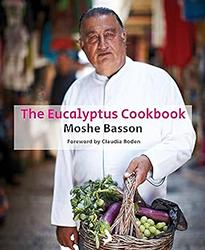The Jewish community of Iraq was established in Mesopotamia more than 2,500 years ago. Salman Shasha, a twelve-year-old Jewish boy living in Iraq, has heard his father describe the importance of that legacy many times. Yet in 1951, when the antisemitism that has always been present in the country increases dramatically, Salman learns that his family will soon immigrate to the new nation of Israel. He refuses to see this decision as either necessary or heroic; for Salman, Baghdad is his homeland, the city where he has always lived with his large extended family. His one ambition is to be a champion swimmer, a goal he has worked toward in the Tigris River. Author Miriam Halahmy has given us a traditional coming-of-age story with a powerful statement about the difficulty Mizrahi Jews faced when integrating into Israeli society.
In beautifully textured prose, Halahmy paints a picture of Salman’s Baghdad. It is a multicultural city where Jews, Sunnis, Yazidis, Armenians, and Kurds all live harmoniously. The sights, smells, and tastes of daily life from a child’s perspective are rich and comforting. The fact that Salman and his friends are cautioned to speak Judeo-Arabic at home and standard Arabic in the streets does not seem ominous to him. We hear Salman’s frustration when his life is abruptly altered by adults. Resisting the ideal of Israel as the promised land, and refusing to transition to speaking Hebrew, Salman rebels in a way that is typical of adolescents, but also specific to a tense historical moment.
Arriving in Israel fulfills many of Salman’s worst fears and also stamps out his parents’ naïve optimism. New arrivals are sprayed with the toxic disinfectant DDT — the implication being that they will bring diseases to their new home. This initiation is only the beginning of their mistreatment. The Ashkenazim are arrogant and insensitive toward their fellow Jews from Arab countries.
Salman’s life in a refugee camp is characterized by deprivation, and he continues to mourn his previous life in Baghdad, which begins to seem like a lost fairy tale: “Salman found himself wishing there was a magic spell to make their lives better.” Even the Mediterranean Sea, which initially granted him “a huge sense of freedom,” turns out to be a hostile actor, overpowering him with its unfamiliar waves.
Salman, who is expected to accept the new name Shimon, finds a nemesis in Zohar, an Ashkenazi Israeli who criticizes the newcomer’s swimming abilities. With the support of his resourceful cousin, Roni, who has easily adapted to the new conditions, Shimon focuses on preparing for a race. After suspecting that his father has never respected his athletic skills, Shimon gradually realizes that the older man is depressed, and that his attitude toward the swim race is more enigmatic: “Something in Abba’s face, almost like a question mark drawn on the skin, held his gaze.” With this sentence, Halahmy has conjured up all the uncertainty of young adulthood, as well as the plight of refugees everywhere. Her novel is both an elegy for a lost past and a hopeful chronicle of change.
Emily Schneider writes about literature, feminism, and culture for Tablet, The Forward, The Horn Book, and other publications, and writes about children’s books on her blog. She has a Ph.D. in Romance Languages and Literatures.





